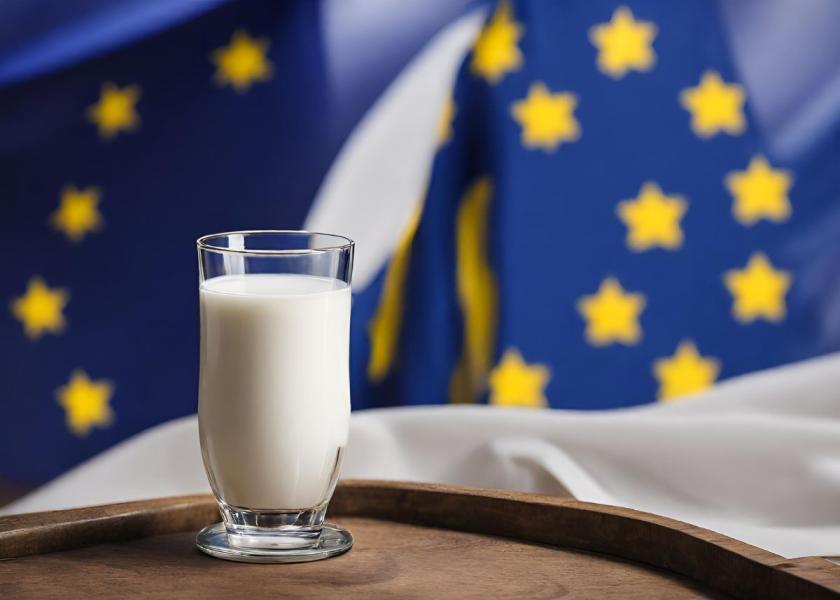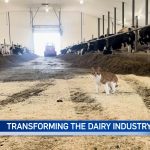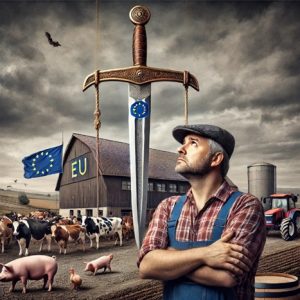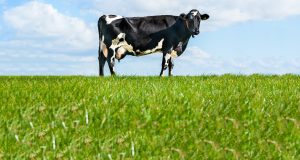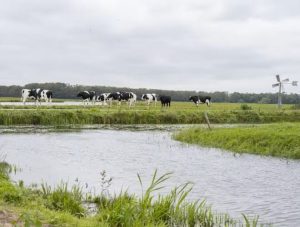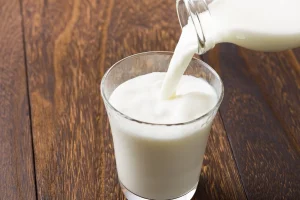
Farmer protests in the European Union, one of the world’s largest exporter of dairy products, have moderated just as the EU milk supply appears to be stabilizing in parts of the continent. EU-27 milk collections fell a slight 0.1% in February, marking the sixth straight month of year-over-year shortfalls, according to preliminary data from Eurostat and CLAL.it However, the gap between this year and last has started to narrow, according to Sarina Sharp, analyst with the Daily Dairy Report.
Milk production was down 0.3% in top-ranked Germany, but weekly data suggests that milk output there climbed back above year-ago levels in March and April, Sharp noted. And a mild February allowed for 0.5% year-over-year production growth in France.
“Extremely wet weather in February weighed heavily on milk yields in northern Europe,” said Sharp. Output dropped 2.3% in the Netherlands, the European Union’s third-largest milkshed, while Ireland’s production plunged 16.3% from prior-year volumes. “Ireland’s decline marks the fifth straight month of dramatic deficits on the Emerald Isle,” Sharp noted. Nearby, in the United Kingdom, production fell 4% from February 2023 output.
“If the United Kingdom were still part of the European Union, it would rank third in milk collections, and it would have dragged the entire bloc’s aggregate milk production 0.5% lower than a year-ago February,” Sharp said. “Rains have not let up this spring, and production is likely to remain well below year-ago levels in the North Sea nations. However, milk output is growing at a rapid clip in Poland and is on the mend in Southern Europe.”
European dairy processors continue to send more milk to cheese vats and less to driers, Sharp noted. Compared to the first two months of 2023, adjusted for leap day, European cheese output climbed 3.9%, while production of skim milk powder and butter dropped more than 6% from early-2023 volumes, according to USDA data.
Anger in the European Union had been growing over low milk prices and Green Deal regulations that farmers say are driving them toward bankruptcy. On March 15, the European Commission (EC) published a legislative proposal to amend certain provisions of EU Common Agricultural Policy (CAP), acknowledging that following the first year of CAP implementation, it became clear that adjustments would be necessary to ensure effective implementation of each member’s National Strategic Plan and reduce red tape. The proposal also moves some of the provisions from mandatory to voluntary. The European Parliament in late April voted 425 to 130 to approve the proposed regulations, which now need to be formally adopted by the EU Council.
Making some of the Green Deal requirements voluntary instead of mandatory could help to reduce EU milk production declines in the long term, said Sharp, while improvements in weather and milk prices could help lift output in the near term.
You can now read the most important #news on #eDairyNews #Whatsapp channels!!!
🇺🇸 eDairy News INGLÊS: https://whatsapp.com/channel/0029VaKsjzGDTkJyIN6hcP1K
